 Administration of Estates Act, 1965
Administration of Estates Act, 1965
R 385
Labour Relations Act, 1995 (Act No. 66 of 1995)NoticesNational Bargaining Council for the Clothing Manufacturing IndustryMain Collective AgreementPart C : Provisions for the KwaZulu-Natal Region4. Wages |
| (1) | Wage Schedule (for clothing establishments): |
Where any of the Council's prescribed wage rates in the National Main Collective Agreement is less than the National Minimum Wage (NMW) it will be adjusted upwards to at least the NMW. The onus is on the employer to ensure that they are not in contravention of the NMW.
[Words preceding Clause 4(Part C)(4)(1)(a) inserted by section 5(2) of Notice No. R. 421, GG44572, dated 14 May 2021]
| (a) | Subject to the provisions of this part of the Agreement, the minimum wages that shall be paid to and accepted by the under-mentioned classes of employees employed at clothing establishments shall be as follows: |
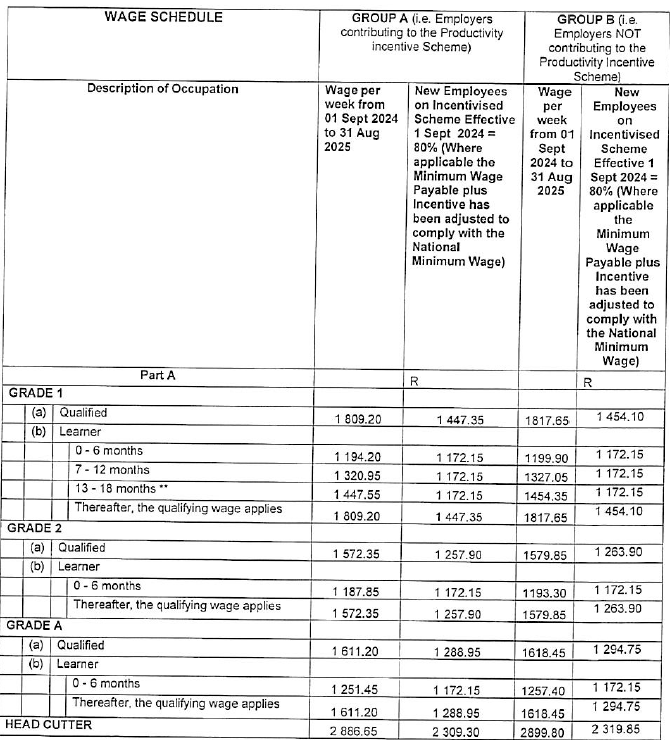
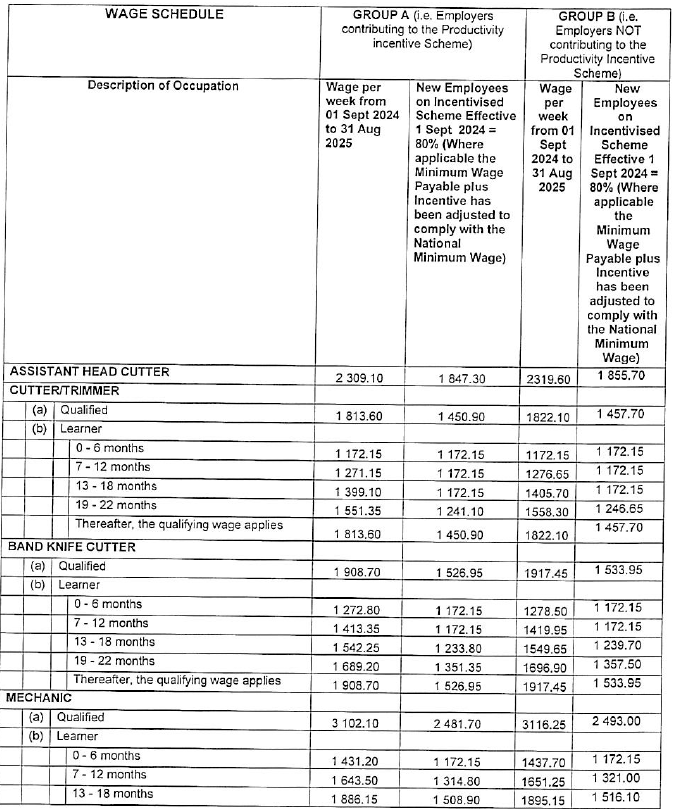
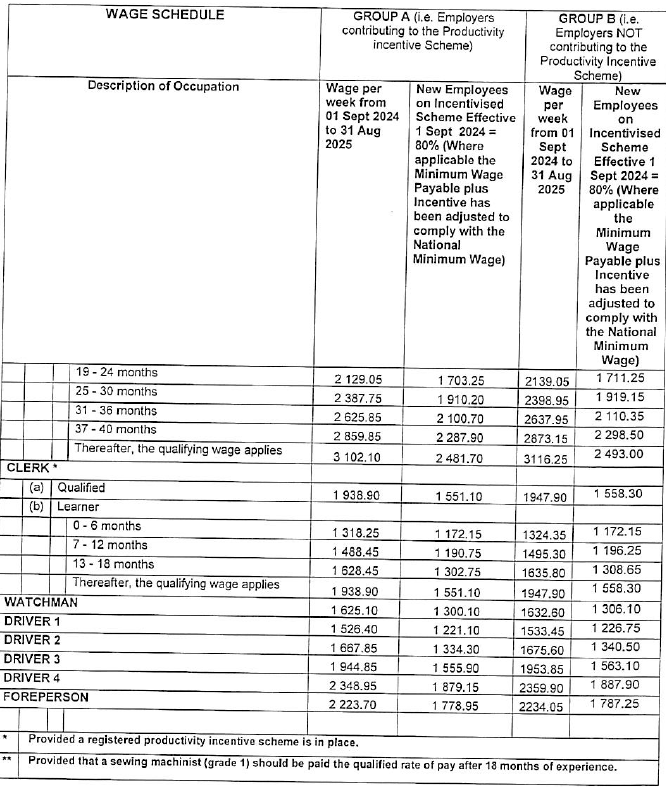
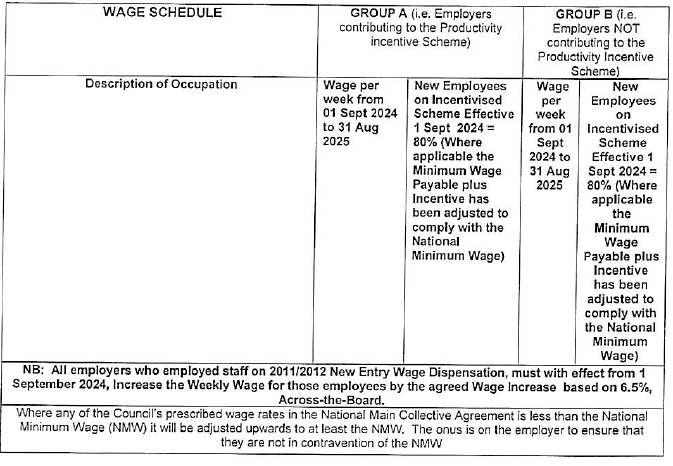
[Part C 4(1)(a) wage schedules substituted by section 5(1) of Notice No. R. 5831, GG52054, dated 7 February 2025]
Where any of the Council's prescribed wage rates in the National Main Collective Agreement is less than the National Minimum Wage (NMW) it will be adjusted upwards to at least the NMW. The onus is on the employer to ensure that they are not in contravention of the NMW.
[Words preceding Clause 4(Part C)(4)(1)(b) inserted by section 5(4) of Notice No. R. 421, GG44572, dated 14 May 2021]
| (b) | Wage Schedule (for garment knitting establishments) |
Subject to the provisions of this part of the Agreement, the minimum wages that shall be paid to and accepted by the under-mentioned classes of employees employed at Garment Knitting establishments, shall be as follows:
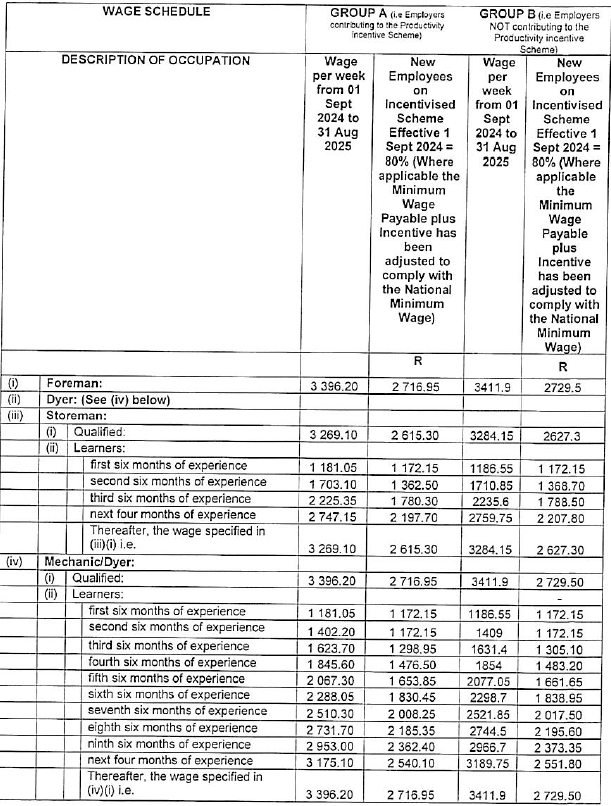
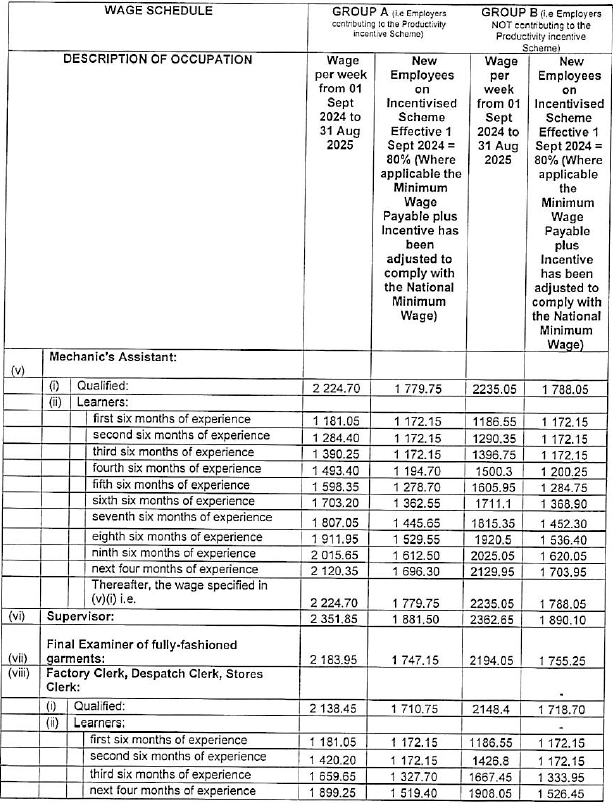
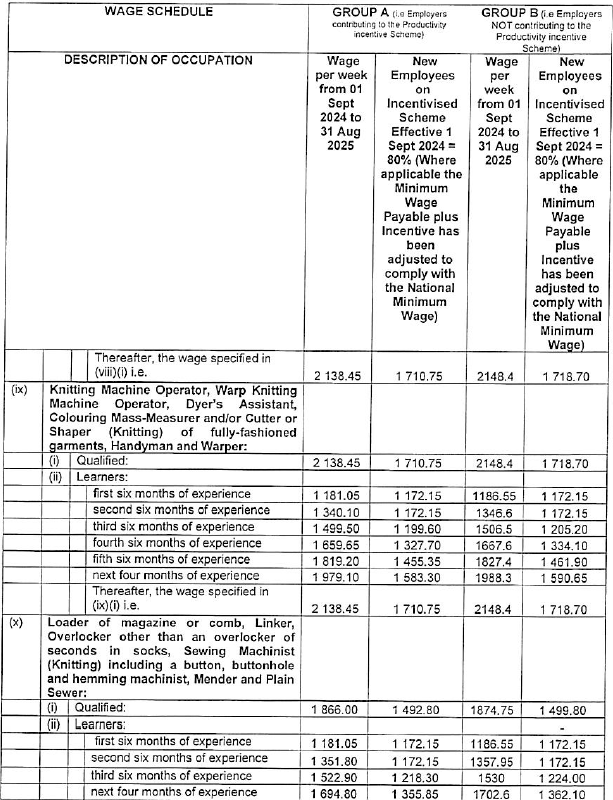
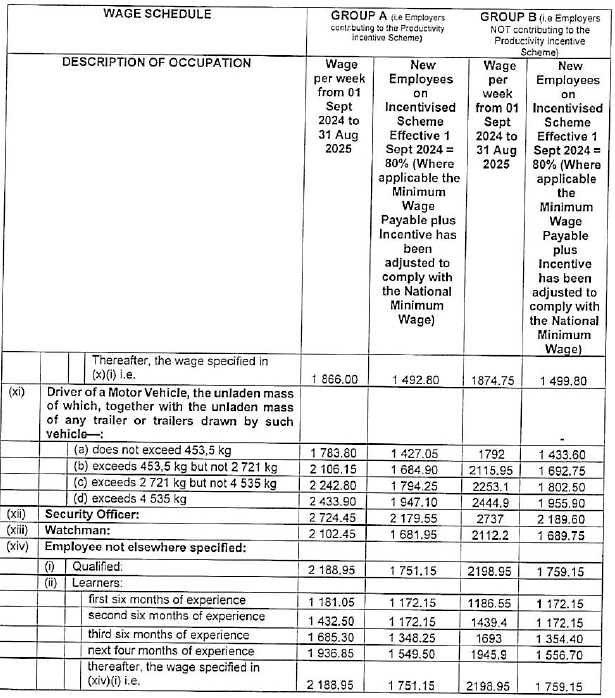
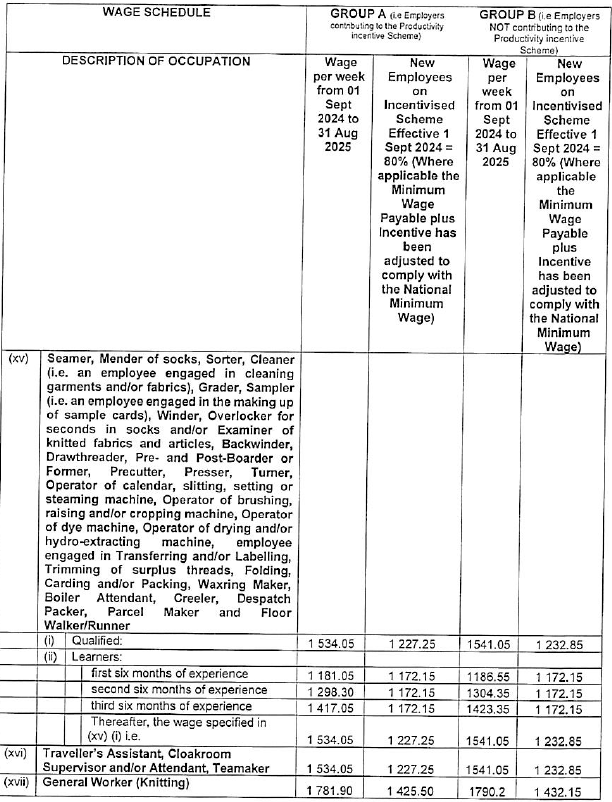
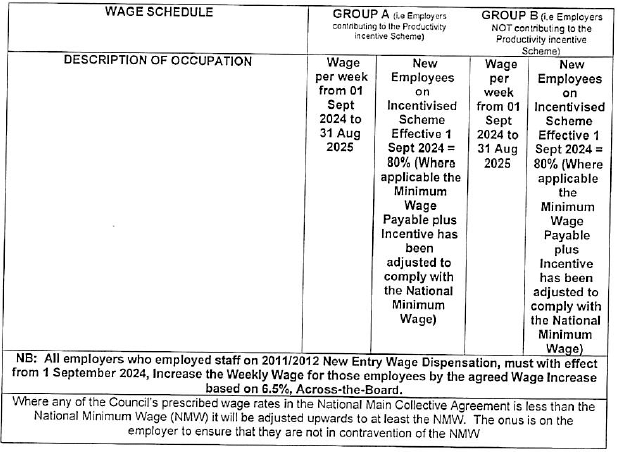
[Part C(4)(1)(b) wage schedules substituted by section 5(2) of Notice No. R. 5831, GG52054, dated 7 February 2025]
| (6) | A once-off payment equivalent to one (1) day's pay at the rates applicable as at the end of December 2020 shall be paid to all employees by no later than 1st June 2021. |
[Clause 4(Part C)(4)(6) inserted by section 5(6) of Notice No. R. 421, GG44572, dated 14 May 2021]
Table of Clauses
|
Clause No. |
Existing 2023/2024 |
New 2024/2025 |
|
25(1) |
R4,41 |
R4,70 |
|
25(2) |
R5,97 |
R5,36 |
|
26(1) |
55 cents |
59 cents |
|
26(2) |
79 cents |
84 cents |
|
40(1) |
31 August 2024 |
31 August 2025 |
|
40(1) |
1 September 2023 |
1 September 2024 |
|
Annexure C of Clause 43(5) |
26 cents |
28 cents |
[Table of Clauses substituted by section 5(5) of Notice No. R. 5831, GG52054, dated 7 February 2025]